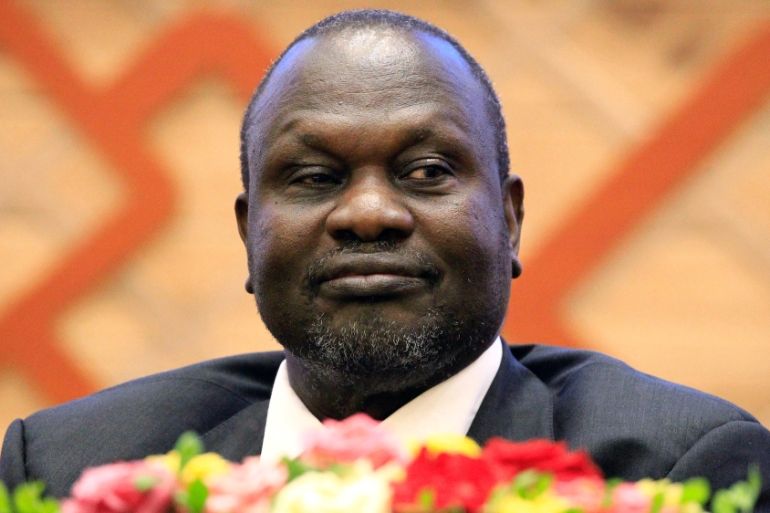South Sudan rebel leader Machar ‘refused’ to sign peace deal
The main opposition groups are demanding guarantees over their reservations about the deal.

South Sudan rebel leader Riek Machar along with other main opposition groups have refused to sign the latest draft of a peace deal with the government that would end a brutal civil war.
The opposition leader and South Sudanese President Salva Kiir signed a ceasefire and power-sharing agreement last month, one of a series of apparent breakthroughs in recent months.
Keep reading
list of 4 itemsA good, steady job? India election turns spotlight on a dream gone sour
Photos: Iran’s unravelling carpet sales
Biden labels Japan and India ‘xenophobic’ along with China and Russia
But Machar’s refusal to sign the latest draft could be a sign of how difficult it will be to implement a full agreement.
“The main South Sudanese opposition groups, including the SPLM-IO (Machar faction), refused to sign the final document demanding that their reservations be guaranteed in it,” Sudan‘s Foreign Minister Al-Dierdiry Ahmed told reporters in Khartoum on Tuesday.
Previous peace deals have held for only a matter of months before fighting resumed.
Kiir has blamed the collapse of previous peace agreements on foreign influence.
The warring parties have held weeks of talks in Khartoum in search of a comprehensive peace deal to end the conflict that has killed tens of thousands of people and displaced millions.
In June, an initial agreement was signed to end the fighting, but Machar rejected some proposals such as having three different capitals to distribute power.
“In 2015, the government changed the number of states from 10 to 32,” said Al Jazeera’s Hiba Morgan.
“Machar has opposed that vehemently and said he didn’t want 32 states. He wanted 10 so that he can have more control. This was one of the main sticking points between the two sides.
South Sudan‘s civil war erupted in December 2013, less than two years after the country gained independence from Sudan.
The war has uprooted a quarter of South Sudan’s population of 12 million, ruined the country’s agriculture sector and battered its economy.
On Saturday, South Sudan resumed drilling for oil in some abandoned oilfields to boost the country’s economy.